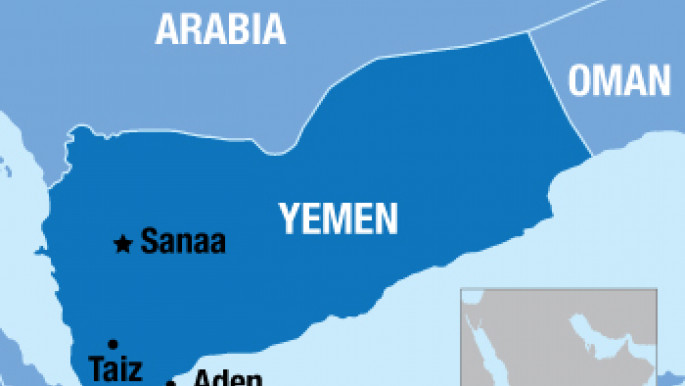Yemen: calls for probe into former president Saleh's 'crimes'
A group of leading figures in the GPC, who are currently present in Saudi Arabia's capital Riyadh, primarily the first deputy of the party, Ahmed Obaid Bin-Daghar, have dismissed their leader and vowed to "refer Saleh and those who stand by him to regulatory authorities in the party to hold them accountable for crimes committed against the Yemeni people, their country and its social union."
Saleh has been allied with Houthi rebels who staged a coup in Yemen towards the beginning of the current year.
The gathering of GPC leading figures decided that Bin-Daghar will speak on behalf of the party and represent it in the coming period. Bin-Daghar is seen as the most prominent figure in the party. He continued to support Saleh until after the beginning of the Saudi-led coalition military operations in Yemen, which began in March.
 |
|
The announcement to dismiss Saleh from the leadership of his party and refer him to an internal trial came hours before a television interview with the former president was broadcast.
During the interview, which was aired in the evening, Saleh attacked the leaders of his party who are in Riyadh. He said they fled to Saudi Arabia where they are "supplying coordinates to the coalition to bomb," and that leaders of his party in Cairo, who "worked as intelligence agents for Saudi Arabia," had offered him to leave the country to Ethiopia.
On the other hand, Saleh said he was willing to step down as party leader in 21 days if the war and the siege are ended, saying he would pledge to not run again in a document that would be presented to the UN. This is the first time the deposed president sets a timeframe for his political requirement after he was ousted from power in 2011.
The interview underlined contradictions in Saleh's discourse, however, when he said he would commit to UN resolution 2216 and implement Saudi demands, if Saudi stops what he called the "aggression". At the same time, he attacked Saudi Arabia while trying to appease the UAE by denying responsibility for the death of its soldiers in Marib.

![Palestinians mourned the victims of an Israeli strike on Deir al-Balah [Getty]](/sites/default/files/styles/image_684x385/public/2024-11/GettyImages-2182362043.jpg?h=199d8c1f&itok=xSHZFbmc)


![The law could be enforced against teachers without prior notice [Getty]](/sites/default/files/styles/image_684x385/public/2178740715.jpeg?h=a5f2f23a&itok=hnqrCS4x)
 Follow the Middle East's top stories in English at The New Arab on Google News
Follow the Middle East's top stories in English at The New Arab on Google News

![Palestinian journalists in West Bank [Getty]](/sites/default/files/styles/image_330x185/public/2167088057.jpeg?h=a5f2f23a&itok=smdkN-46)
